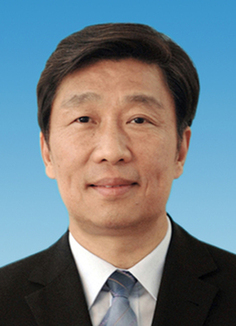China also has a dream to pursue
- By Li Yuanchao
 0 Comment(s)
0 Comment(s) Print
Print E-mail China.org.cn, February 21, 2012
E-mail China.org.cn, February 21, 2012
|
|
|
Li Yuanchao [File Photo] |
The world has entered the era of the knowledge economy and, as the key strategic resource for national development, talent is playing an increasingly vital role. For example, today, the use of computers to create wealth and value signals a major change in mankind's mode of working. Wealth and value were first created from the soil, then in factories, later in banks and now via the Internet and computers. This marks significant human progress.
Mr. Thomas Friedman said that in the era of the knowledge economy, the world is flat. The most fundamental characteristic of this era is the transnational flow and internationalization of talent. According to statistics from the United Nations, the number of people who currently live and work outside of their native countries exceeds 200 million, and this number is increasing by three percent each year. This global flow of talent offers fresh hope for undertaking key science and technology projects as well as for tackling existing global challenges. The Human Genome Project was an outstanding example of this. The project, hailed as one of the three major scientific undertakings of the 20th century, was jointly completed by scientists from the United States, the United Kingdom, France, Germany, Japan and China.
International exchanges and the collaboration between talents from different countries have provided these talents with a new broad arena in which they can work to their full potential. For instance, Mr. John Thornton, former President of Goldman Sachs of the United States, became a guest professor at Tsinghua University in 2003. The global leadership course that he directs has become one of the most popular and influential courses at the university.
The increased flow of international talent and intellectual opening-up and cooperation has become universally accepted in today's world. Chinese President Hu Jintao pointed out that China will pursue a more positive opening-up strategy in order to better promote development, reform and innovation, and to allow more countries and people to benefit from China's development. We will implement a more open policy on the internationalization of talent and will strengthen cooperation and exchanges in this area.
China is characterized by a large population, a big market and abundant opportunities generated by its rapid growth. Since the launch of reform and opening-up in 1978, China has always attached great importance to bringing in outstanding overseas talents. Between 2001 and 2010, China welcomed 300,000 foreign specialists annually. Many of these specialists are world-renowned and came to China for work, exchanges or cooperation. They made important contributions to China's development and won the respect and friendship of the Chinese people. The Chinese government has established the "Friendship Award" to recognize those foreign specialists who make outstanding contributions.
China is now implementing its 12th Five-Year Plan. The realization of the plan's aims hinges on science and technology as well as talent. China currently boasts a considerable reservoir of talents, although it still has a shortfall of high-caliber individuals. In 2008, China began implementing its "Recruitment Program of Global Experts" to bring in high-caliber overseas talents. In the past three years, more than 1,600 high-caliber talents who had studied abroad returned to China to start innovative ventures or businesses. In 2011, China initiated its "Recruitment Program of Foreign Experts", with the aim of attracting more experts from abroad. With our expanded vision, fresh courage and a more open mindset, we will attract more high-caliber overseas talents, including foreign experts, to participate in China's modernization. We will offer these outstanding talents preferential policies and treatment as well as better working and living conditions.
China's robust modernization drive not only provides an unprecedented opportunity, but also creates substantially improved research conditions and business platforms which allow talents to put their skills to good use. China has more than 2,200 universities, 3,700-plus independent scientific research institutions, 18,000 scientific research institutions operated by large and medium-sized enterprises, and more than 330 national key laboratories. In 2010, China's research funding totaled 698 billion yuan ($111 billion), the third in the world up from 2005's sixth-place. Research funding will continue to increase substantially in the future. "For the world's top engineering talents, China will be an optimal stage for them to realize their dreams of changing the world through technology," said Robin Li, Chairman of Baidu, who returned to China from the United States more than 10 years ago to start his business.
An open China holds unlimited opportunities; a growing China is a place of limitless hopes. Now, the world not only has an American dream in the West, but also a Chinese dream in the East. We sincerely welcome foreign experts from all over the world to come to China to work, share in China's development opportunities and realize their life dreams.
The author Li Yuanchao is Member of the Political Bureau of the CPC Central Committee, Member of the Secretariat of the CPC Central Committee, and head of the Organization Department of the CPC Central Committee.
This article was first published in Chinese in International Talent journal's first issue of 2012 and translated by Li Xiaohua.








Go to Forum >>0 Comment(s)